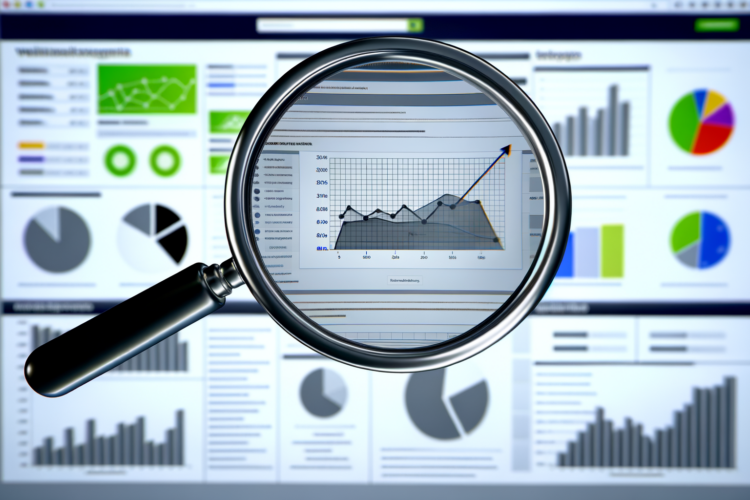
The best way to track SEO progress is through a combination of analytical tools, metrics, and performance indicators that reflect your site’s visibility, user engagement, and ranking improvements over time. Consistent monitoring with tools like Google Analytics, Google Search Console, keyword rank trackers, and backlink analysis platforms provides a comprehensive view of your SEO campaign’s impact and allows for data-driven decision-making.
Understanding SEO Metrics
SEO is a multifaceted domain, and as such, requires a close look at various metrics to truly evaluate the progress of your efforts. To really grasp how well your website is performing, you’ll need to keep an eye on search rankings, organic traffic, backlinks profile, user engagement, and conversions. These indicators will tell you not just how visible your website is, but also how visitors interact with it.
Search Rankings
One primitive yet essential indicator of SEO progress is your website’s ranking for targeted keywords. Tracking changes in keyword rankings can inform you about how well your content aligns with search queries and user intent. Use keyword rank tracking tools to monitor your page positions for specific keywords over time.
Organic Traffic
Organic traffic refers to visitors who come to your website from an unpaid search result. It’s a key indicator of SEO success because it represents the quality and relevance of your website content. Tools like Google Analytics provide insights into the volume of organic traffic, which pages draw the most visitors, and what search queries bring them to your site.
Backlinks Profile
Backlinks, the links from other websites to yours, are influential factors in search engine rankings. Monitoring your backlink profile helps you understand your site’s authority and trustworthiness. Use backlink analysis tools to track the number and quality of backlinks you acquire or lose over time.
User Engagement
User engagement metrics, such as bounce rate, average session duration, and pages per session, are vital for assessing how visitors interact with your site. High engagement levels often correlate with content quality and relevance, which, in turn, can lead to higher rankings and more traffic.
Conversions
Ultimately, the success of any website is measured by the actions users take after they arrive. Conversion tracking in Google Analytics can help you understand which organic keywords and landing pages lead to sales, sign-ups, or other important user actions.
Essential Tools for Tracking SEO Progress
To track and interpret the aforementioned metrics efficiently, you’ll need to leverage a suite of SEO tools. Here’s a rundown of some essential platforms and their applications.
Google Analytics
Google Analytics is an indispensable tool for tracking website traffic. It enables you to see the number of users visiting your website, the channels they’re coming from, their behavior, and the rate at which they’re converting.
Google Search Console
Google Search Console is another free tool from Google that allows you to monitor and troubleshoot your website’s presence in Google search results. Here, you can view search queries that bring visitors to your site, your site’s click-through rates (CTRs), and how your pages are indexed.
Keyword Rank Trackers
Keyword rank trackers help you observe the positions of your web pages for specific queries. Several third-party tools offer rank tracking services, and they can provide alerts when your rankings increase or decrease.
Backlink Analysis Tools
Backlink analysis tools such as Ahrefs, SEMrush, or Moz’s Link Explorer offer detailed insights into your website’s link profile. They not only help track the number of backlinks you acquire but also provide data about the linking domains’ authority.
Regular Auditing and Reporting
Tracking SEO progress isn’t a set-and-forget task. You’ll need to perform regular SEO audits to identify issues and opportunities for optimization. These audits encompass technical components, on-page elements, off-page factors, and user experience aspects.
Furthermore, comprehensive reporting, conducted either monthly or quarterly, is essential for understanding the long-term trends in your SEO metrics. Using dashboards and customized reports, you can juxtapose data from various sources to present a holistic view of your SEO campaign’s performance.
Adapting to SEO Changes
Search engine optimization is an ever-evolving field, and what works today may not work tomorrow. Keeping up with algorithm updates, industry changes, and new SEO practices is key to sustaining and improving your site’s performance. Responding to these changes quickly and updating your SEO strategy accordingly ensures that your tracking metrics remain relevant and insightful.
Finishing Thoughts
Tracking SEO progress is a complex, yet crucial part of any successful SEO strategy. By closely monitoring a combination of metrics—like search rankings, organic traffic, backlink profiles, user engagement, and conversions—you can get a clear picture of your SEO performance. Utilize tools such as Google Analytics and Google Search Console, along with keyword rank trackers and backlink analysis tools, to collect and interpret the necessary data.
Regular auditing and reporting play a vital role in ensuring that your efforts are aligned with your SEO objectives. And remember, adaptability is essential in the dynamic landscape of SEO—stay informed and be ready to tweak your strategy as needed. By following these practices, you’d be well-equipped to track your SEO progress effectively and steer your website towards sustained success in the digital ecosystem.
Frequently Asked Questions
What are the key metrics to track for SEO progress?
To effectively track SEO progress, you should monitor various metrics such as organic search traffic, keyword rankings, click-through rate (CTR), backlinks count and quality, and domain authority. Additionally, keeping an eye on the performance of specific landing pages, bounce rate, and time on site can also provide valuable insights into how well your SEO efforts are resonating with your target audience.
How often should I check my SEO analytics?
SEO analytics should be checked regularly to ensure that your strategy is performing well and to identify any anomalies early on. Generally, a monthly review of comprehensive analytics is a good practice, with weekly check-ins for more high-level metrics like organic traffic and keyword rankings. However, if you recently implemented significant changes to your SEO strategy, you might want to monitor the impact more frequently, such as daily or weekly.
What tools can I use to track SEO progress?
There are many SEO tools available that can help you track your progress. Some of the popular ones include Google Analytics, Google Search Console, Ahrefs, SEMrush, Moz, and Screaming Frog. Each tool offers different features and data points, so it may be beneficial to use a combination of these tools to get a comprehensive view of your SEO performance.
Is tracking rankings for keywords important?
Yes, tracking rankings for keywords is important as it gives you an indication of how well your pages are performing in the search engine results pages (SERPs) for your targeted queries. It helps you understand which keywords are driving traffic and which ones might need more optimization work. However, it’s important not to focus solely on rankings for a few keywords but to also consider the broader picture of overall search visibility and traffic.
How do backlinks affect my SEO tracking?
Backlinks are a crucial factor in SEO as they represent a “vote of confidence” from one site to another. Tracking your backlink profile helps you understand which websites are linking to you, the quality of these links, and how your off-page SEO efforts are contributing to your domain authority. A sudden drop in high-quality backlinks could signal an issue that may affect your SEO progress.
Can changes in SEO algorithms affect how I track my progress?
Yes, search engines like Google frequently update their algorithms, which can impact how your site ranks and the effectiveness of your current SEO strategies. It’s important to stay informed about these updates as they may require you to adjust how you track and interpret specific metrics. For example, if an algorithm update devalues certain types of backlinks, you might need to focus more on the relevance and quality of backlinks rather than the quantity.
What role does mobile optimization play in SEO tracking?
Mobile optimization plays a significant role in SEO, especially after Google’s switch to mobile-first indexing. Tracking the performance of your website on mobile devices is essential as it can impact your rankings and overall search visibility. It’s important to ensure that your site is mobile-friendly, has fast loading times, and provides a good user experience on smaller screens to maintain and improve your SEO progress.
How do I know if my SEO efforts are making an impact?
To determine if your SEO efforts are making an impact, you should observe improvements in key metrics such as organic traffic, keyword rankings, CTR, and conversion rates. If you’re seeing a positive trend in these areas over time, it’s a sign that your strategies are working. However, SEO is a long-term process, so it’s important to have patience and not expect immediate results.
What’s the best way to report SEO progress?
The best way to report SEO progress is to use a comprehensive, yet understandable, report that includes key metrics, progress over time, and insights into what the data means for your business. Tools like Google Data Studio can be used to create custom reports that combine data from various sources, making it easier to visualize your SEO progress and share it with stakeholders.
Can social media metrics somehow tie into SEO tracking?
While social media metrics are not a direct ranking factor for SEO, they can provide indirect benefits to your SEO efforts. Increased brand exposure on social media can lead to more searches for your brand, and heightened engagement can result in more backlinks and traffic to your site. These factors, in turn, can positively impact your SEO progress, making it beneficial to track key social media metrics alongside traditional SEO KPIs.






